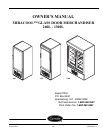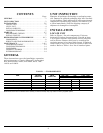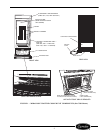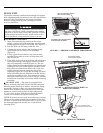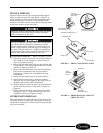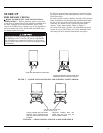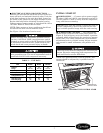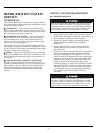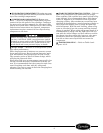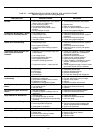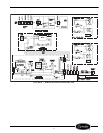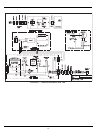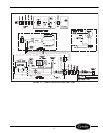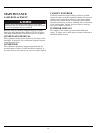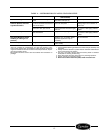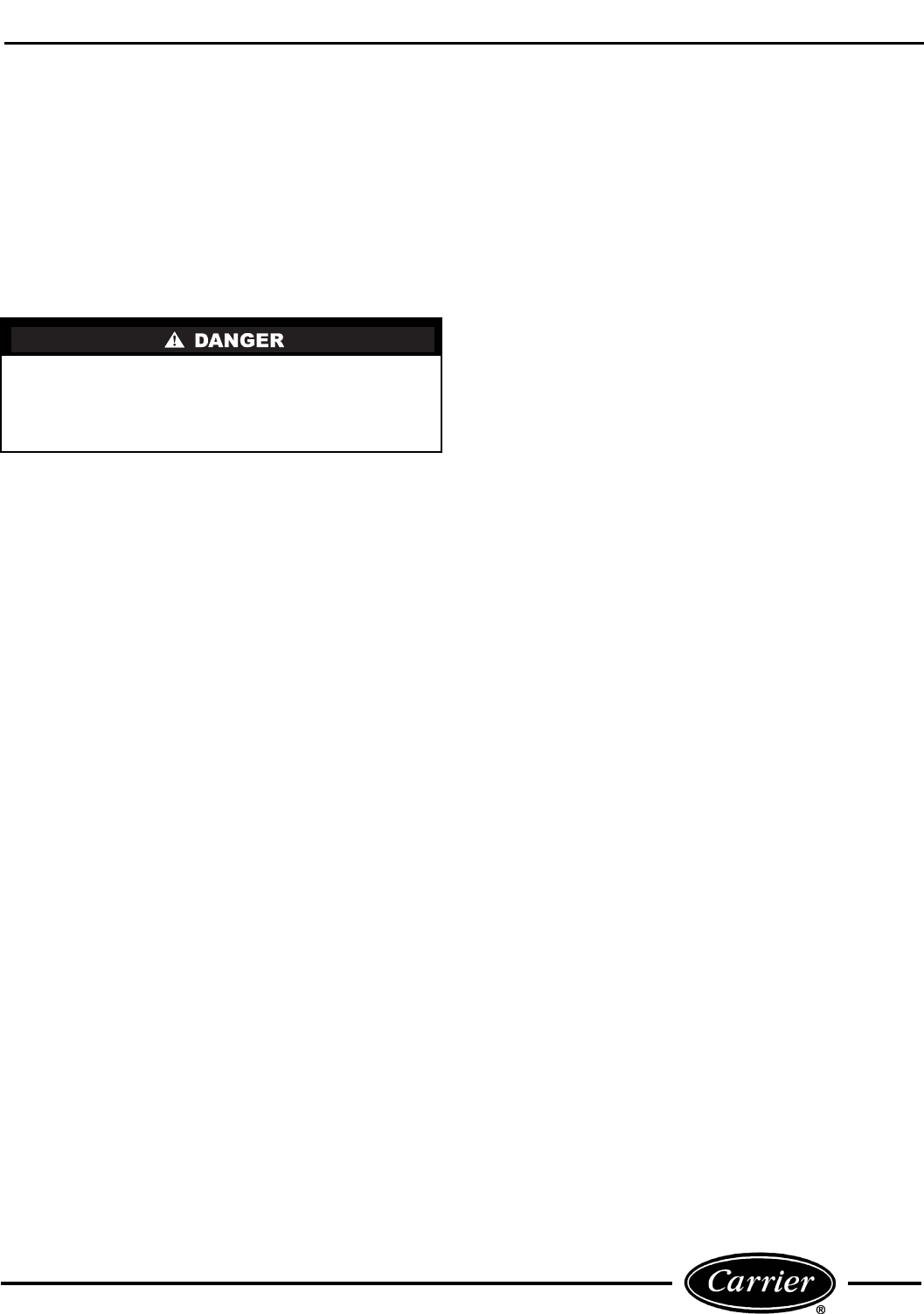
9
EVAPORATOR COMPARTMENT (Interior top area)
— All serviceable parts are directly accessible from the
top of the cartridge compartment.
COMPRESSOR COMPARTMENT (Bottom rear
area) — Access to compressor compartment requires
removal of the side panel of the cartridge. Condenser
fan access also requires removal of a side panel. Side
panels are secured with 5 Phillips screws. After tubing
and electrical connections are removed, compressor
replacement requires removal of four clips securing
compressor to the base.
EVACUATION — Moisture in a refrigeration system
may affect performance.
When large amounts of moisture are present, system
freeze ups will occur. Even in minute amounts, mois-
ture will combine with refrigerants to form an acid.
The corrosive action of this acid forms sludge, which
will plug the lines and drier.
Since most field type vacuum pumps cannot pull a low
enough vacuum to remove all moisture from the sys-
tem, it is recommended that the system be triple evac-
uated, breaking each time with dry refrigerant
nitrogen. Use care to purge air from the charging hose
when breaking the vacuum.
CHARGING REFRIGERATION SYSTEM — Refer to
Table 2 for refrigerant type and amount of charge.
Since capillary tube systems have small critical refrig-
erant charges, it is recommended that a field charge
either be weighed in or transferred from a portable
charging cylinder. After maximum vacuum has been
obtained as detailed above, attach charging cylinder to
the system line making sure to purge air from hose
with refrigerant. With the unit running, allow refrig-
erant to run slowly into the system until the desired
charge is reached. When using refrigerant blends it is
recommended to charge into the high side of the sys-
tem with the initial charge and then add any remain-
ing charge into the suction side; however, care must
be taken to meter the remaining amount into the
low side so that excess liquid does not enter the
compressor.
TROUBLESHOOTING — Refer to Table 3 and
Figures 10-12.
Before servicing unit, disconnect electrical service.
On sizes 1100L and 1300L, turn disconnect switch
(located on power cord) to the OFF position. Failure
to disconnect electrical service could result in elec-
trical shock and cause personal injury or death.



